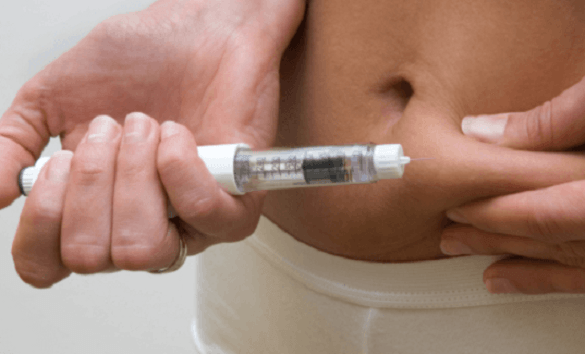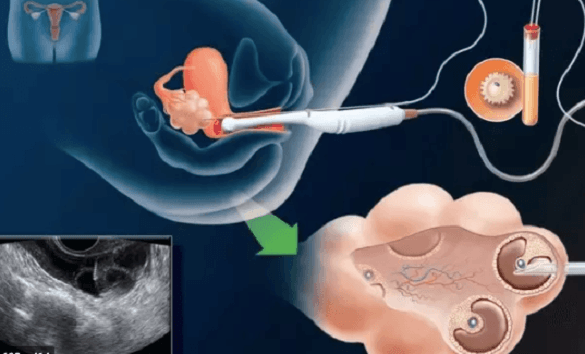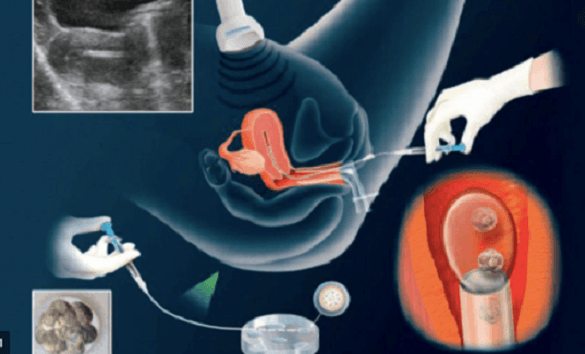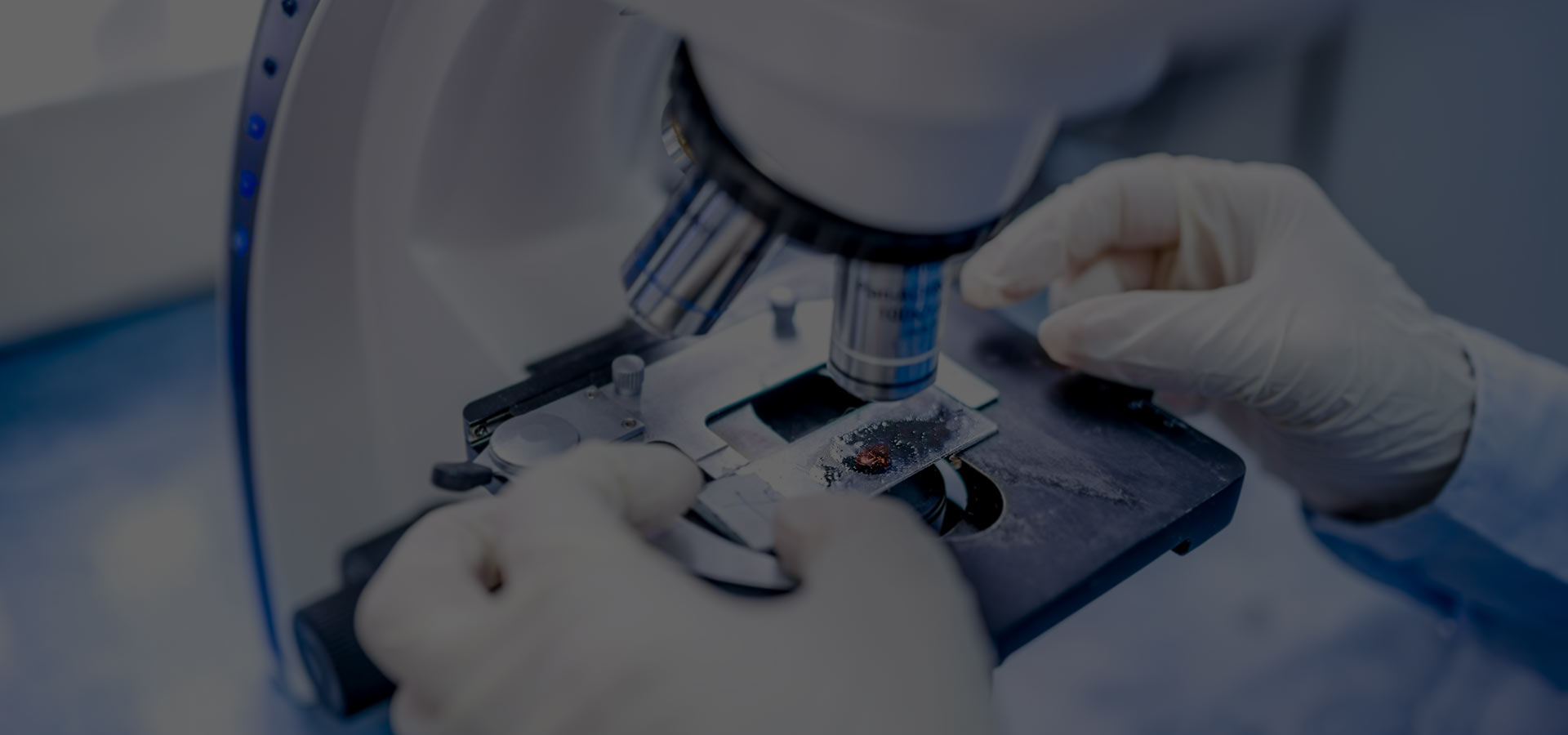
In vitro fertilization (IVF) literally means ‘fertilization in glass,’ more simply explained as ‘test tube baby’. In the IVF process, eggs are removed from the ovaries of the female, at the same time sperms are collected from the male partner. The eggs and sperms collected are made to fertilize in the laboratory and the fertilized egg (embryo) is then implanted in the woman’s womb to make her conceive.
We believe that age must not be a factor of consideration when going for IVF process as we get a lot of infertile couples between the age of 25 – 30 years who
think that they are too young to go for IVF treatment and it’s a last resort without even knowing the statistical figures which clearly indicates that the success rate of IVF or any fertility procedure decreases with age.
This technique evolved in late 1970s and was mainly used for females having tubal blockage but with the advent of superior equipments and technology coupled with increase in complications faced by infertile couples.
In-Vitro Fertilization or IVF is a process that involves the method where high doses of hormonal injections are given to a woman so that she makes numerous eggs. Once the eggs are produced, they are taken out from her ovaries. It is followed by the process when the man’s sperm are allowed to fertilize the eggs but outside the body to make embryo. Soon the embryo starts to grow and it is when they are inserted into the uterus of the woman for implantation and pregnancy takes place.
IVF can be used to treat infertility in patients with:
- Blocked or damaged fallopian tubes
- Ovulation disorder causing premature ovarian failure
- Advanced maternal age
- Male factor infertility causing decreased sperm count or sperm
- Genetic disorder
- Women with Endometriosis
- Unexplained infertility
- Women with uterine fibroids.
- Women who have had their fallopian tubes removed.
- Fertility preservation- social or in women or men suffering from cancer.
Ask Doctor
The IVF Procedure
In vitro fertilization or IVF is a commonly performed ART (assisted reproductive technology) procedure. Ideally, it is a four-step process that includes controlled ovarian hyper stimulation, egg retrieval, fertilization in a lab, and followed by the embryo transfer to the mother’s womb.
Controlled Ovarian Hyper stimulation
Women undergoing IVF needs to take 10-12 days of daily hormonal injections so as to develop multiple eggs in each ovary compared to one that develops in a normal monthly cycle in either ovary.The injections are generally patient friendly and can be self administered.With regular ultrasound monitoring & blood tests, the growth of the egg containing follicles is assessed and the appropriate time for egg retrieval is determined.
Before the retrieval procedure, the woman is injected with another injection to trigger the ripening of the developing eggs and promote the ovulation process. The egg must be retrieved just before they start emerging from the follicles in the ovaries. Timings are very important in IVF procedure.


Egg Retrieval
Once the eggs are ready, they are retrieved through a minor procedure. A hollow needle under ultrasound guidance is introduced through the vagina to aspirate the eggs from the ovary. This procedure is done under anaesthesia and hence pain free. On the same day the male if asked for the sperm sample that is prepared for the fertilization process.
Fertilization in Lab
Both the retrieved egg and the prepared semen sample is incubated in the lab incubator together in special media to aid fertilization.
In some cases, where the sperm count of the male is extremely low IVF may be combined with a procedure known as intracytoplasmic sperm injections (ICSI). In this procedure, the sperm is taken from the semen or directly from the testicles and then inserted directly into the egg, post which normal IVF process is followed. In this a single sperm is directly injected into the egg to achieve fertilization under high power microscope. Regular monitoring on daily basis is done to confirm the fertilization & cell division process. Once this happens, the fertilized eggs are referred to as embryos.
The fertilized eggs are kept in the laboratory for observation. This process may take up to 5 days until the embryo reaches a more advanced blastocyst stage.
Embryo Transfer
After 3-5 days following the egg retrieval and fertilization, the embryos are transferred into the woman’s uterus using a catheter or a small tube. This is an extremely comfortable painless procedure. After 5-10 days post the egg retrieval process, the implantation which is attachment of the embryo to the womb lining usually occurs.

Recovery:
After the Embryo transfer (ET) procedure, a patient is advised for stay in bed for 1-2 hours. Most women can resume their day-to-day activities from the next day.
Some women may experience mild cramping and bloating post the egg retrieval procedure that is only temporary.
Two weeks post the IVF procedure, the doctor will advice you to take a pregnancy test.
The typical IVF Cycle
A typical IVF cycle till the pregnancy test is about 30 days long.
Day 1
- Usually on the start of menses day 1, patient undergoes hormonal tests, following which the injections containing gonadotropins are started from day 2/3 of menses.
Day 6
- A follow up with the doctor is done to check if enough follicles have developed to continue the IVF cycle. Further growth of the follicle is monitored on subsequent visits on alternate day basis.
Day 10-12
- The woman is given human chorionic gonadotropin (hCG) or agonist injection to trigger ovulation.
- 35 hours after hCG, the eggs are retrieved from the ovaries. At the same time the sperm is collected. The eggs and the sperm are then combined in a laboratory dish.
Day 13
- The embryologist checks the dish to see how many eggs have been fertilized and their quality. If there are multiple good-quality embryos, some may be frozen for future IVF cycles.
Day 15-17
- The embryos are now transferred in to the woman’s uterus using a catheter.
Days 28-30
- The pregnancy test!
What is the success rate of IVF Procedure?
On average, IVF has 40% success rate comparable to international standards, but totally depends on various factors like age, the reason for infertility etc.

